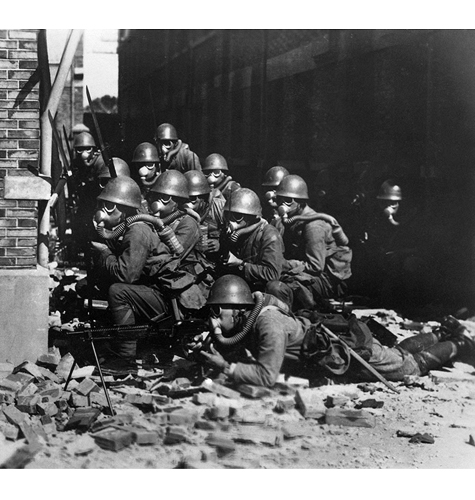The year is 1997 and Garry Kasparov, the World Chess Champion, faces an unconventional opponent in a historic game. “Deep Blue”, a computer, was in fact about to face the Grandmaster for the second time after losing the first match. The match’s outcome was to be written in the history books: “Deep Blue” defeated Kasparov 3½-2½ and became the first computer to defeat a reigning world champion. This game was a significant milestone in the field of AI which aims to expand the abilities of computers to the ones of humans and has achieved wide recognition mostly thanks to many Science Fiction films that took the idea a few steps forward.Will we one day be able to relinquish the human factor in aerial defense systems, UAVs and even fighter jets and trust the systems to take off, reach their destination, identify their target and attack it automatically?

Trusting the Computer
In many of the advanced systems in the world of aviation, in the IAF and in other air forces, there are certain elements of AI, with different levels of classification. The Aerial Defense Division has systems that can identify missiles threats and as the years pass, the identification and discovery abilities advance.
Fighter jets have command and control systems that can automatically perform actions which used to be performed by humans alone, which have to do with discovering and locking on to targets. Nonetheless, there is always a “Man in the loop” who is responsible for “pressing the button”.
“The technology exists”, declares Aryeh Egozi, a veteran aviation expert and security correspondent. “But in Israel, like in the rest of the world, they do not let the aircraft do everything alone. There is a kind of fear of computerized systems, which is more psychological than technological. According to experts, in 20 years from today, the role of AI in the battlefield will be much greater than today, but I do not know if the human factor will be completely relinquished”.
Artificial Intelligence is quite a wide definition, but as the years pass it is possible to point out a continuous improvement in technology with the goal of performing tasks faster, more effectively and not in a completely “human” way: advanced sensors assist the computer in creating a comprehensive image of the battlefield, complex algorithms give it the ability to identify details and data and past experience allows the creation of recurring patterns which can, with increasing accuracy, define every possible dilemma and situation and teach the systems how to act in every case.
“There is no technological problem. Theoretically, the Prime Minister and Minister of Defense can decide to take the human out of the mission tomorrow morning. There is an ethical question here: do we trust the technology we possess enough to make decisions in real-time? Will it be able to take ethics into consideration when a bus full of children passes by the target?” Egozi asks.
Despite the questions that surface when dealing with a computer instead of a human during attack, in defense, AI is gaining momentum. “When the entire process is carried out by a computer, it is much faster. If you take a system which prevents collisions of airliners by identifying the coming aircraft from a distance, you can refer to it as an AI system and there are plenty of those in civil aviation”, explains Egozi. “When dealing with military aviation and operational missions, the fast responses are an advantage as they are a disadvantage: man sometimes hesitates. The question is if you want the hesitation or not”.

The future fighter jet – Autonomous?
While the “Adir” (F-35I) jets are expected to land in Nevatim AFB in late 2016, making Israel the first country in the world to fly the jets operationally outside of the U.S and introducing it to the “Fifth Gen”, across the world plans for the fighter jet of the future are being developed, even though it is expected to be manufactured in the 2030’s.
The Pentagon has already stated its intention to integrate AI technology in the sixth generation of fighter jets. “At the moment, the F-35 is considered the last manned fighter aircraft, so it is difficult to estimate what the jet that comes after it will look like. The sixth generation of fighter aircraft will be smarter, stealthier and will integrate more AI technology than any other aircraft in the world. Whether there will be a pilot in the cockpit or an operator in the station, most of its actions will be performed automatically”, Egozi asserted. “This perception is about 20 years old and since significant quantum leaps have been made and it continues to advance in giant steps. The decision of when to take the man out of the equation currently depends on the decision makers”.

from: http://www.iaf.org.il/4447-46491-en/IAF.aspx
Link:
http://breakingdefense.com/2015/12/northrop-unveils-sixth-gen-fighter-concept/
Pubblicazione gratuita di libera circolazione. Gli Autori non sono soggetti a compensi per le loro opere. Se per errore qualche testo o immagine fosse pubblicato in via inappropriata chiediamo agli Autori di segnalarci il fatto è provvederemo alla sua cancellazione dal sito









